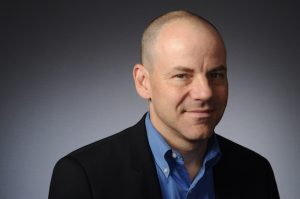You have an impressive list of work experiences and accomplishments. What are you most proud of and why?
I hope people won’t be disappointed, or think me ungrateful in my answer because the autism world is what has supported my family and given me a real career…but in a prior position as a minor-league diplomat, I directed an endeavor that brought clean water to 81,000 people in the highest need area in Iraq (Basrah). It was during the Saddam Hussein days, at a time when the infant mortality rate was through the roof, and orchestrating it was beyond tricky, so…I reluctantly have to go with that one. Founding the world’s largest membership organization for adults on the spectrum (+ the books) could be argued as indirect lifesavers, but if I’m really under a polygraph…The Iraq Water Project directly saved lives.
In your opinion, where is the line between wanting to alleviate or eliminate the most disabling conditions that accompany autism and wanting a cure for autism itself? Can you describe this difference (if you believe there is one)?
Obviously I’ve fought the word “cure” for a long time, and thankfully we’ve pretty much banded together on this issue as a community to defeat those who would (mostly) unconsciously seek to stigmatize our very existences. But I look at accompanying ramifications of either stigma, or the diagnostics, such as anger, or anxiety, or depression, and I don’t have an issue with treating those elements as “bad guys.” I’m even at a point in my career where I believe that 90% of what causes unhappy lives on an internal level for us lie in our challenges towards achieving emotional regulation. Working to alleviate that stuff always makes our lives better. Being scared, people must realize, will never not suck. So I say yes to “alleviating.”
In what ways has your son’s childhood (growing up with an autism diagnosis in a family that understands autism) been different from yours (growing up without a diagnosis)?
It’s been great for him obviously from the standpoint that the grownups get him a lot better than grownups once got me. And he doesn’t have to embrace risk on a constant basis like I did in order to learn about the world. But I think his challenges are actually quite equal—they’re just different. Where my generation sees identity in embracing our differences, his often sees pathology. I had to be “first” in order to not slip through the cracks, and he doesn’t have that problem. And while its been great that he had a cleaner road (people liked him growing up, and they very often did not like me), I’d argue, and I think he’d agree, that my “dirty road” gave me a lot more confidence in the end. Funny…years ago when he was 15, a writer spent time talking to the two of us, and he wrote that our conversation was “like listening to Gloria Steinham with a daughter who just wanted to listen to Britney Spears.”
There is so much opposition among those impacted by autism regarding how to support or advocate for individuals on the spectrum. In your article “Calling a Truce in the Spectrum ‘Wars,'” you conclude with the proposition that everyone “come together to unite in the fight to get everyone the services they need and deserve, even if the needs may differ dramatically.” What does this united front look like? At the local/community level? At the government level?
All of the above, although locals leading locals will always be more effective.
You had the opportunity to participate in the first-ever Congressional hearing on autism. What does Congress need to hear in 2018 on autism? Would your message be the same or how would it change?
It would stay the same, and be focused on services. We’re still far apart in consensus-building on the other areas. But if I were orchestrating another Congressional hearing, I’d do a little more work to make sure that all the seats in the hall weren’t occupied by people who still think you get this condition from vaccines. And I’d give time to Congressional Representatives that didn’t believe that vaccine nonsense, or who actually stuck around to listen to testimony (rather than poke their head in to scream at CDC officials, and then leave). I’d also give more time to self-advocate testimony because we are a surprising selling point to government. Why? Because so much of what we advocate for has to do with attitude change…and attitude change costs a lot less than many of the expensive therapies that have greater representation, and therefore, a greater ability to lobby government for funding.
What mistakes do well-intentioned, neurotypical autism advocates make?
C. Starting too late in providing opportunities to practice independent living. You can’t start too early.


Laura Goggins
Jenna
Ginny Hanes
Full Spectrum Mama